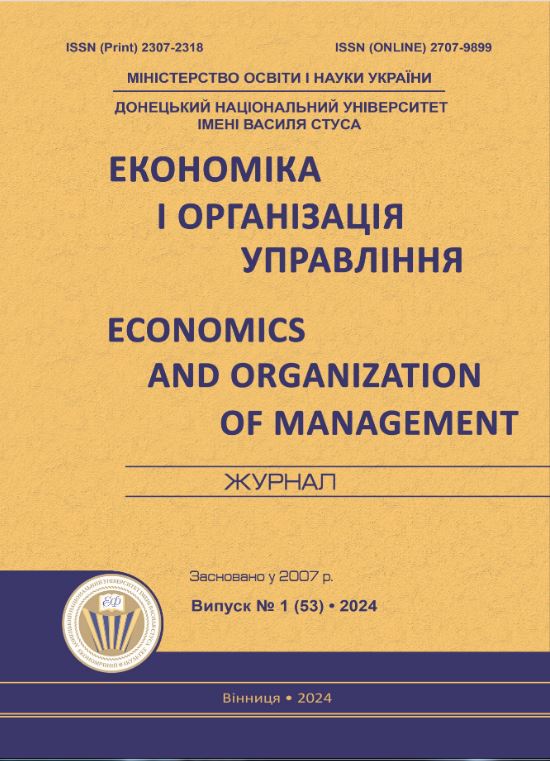International standard of business analysis: theoreticaland methodologicalbasis for justification of management decisions
DOI:
https://doi.org/10.31558/2307-2318.2024.1.4Keywords:
business analysis, financial analysis, tools, unification of analytical indicators, analytical procedures, methods of analysis, accountingAbstract
The article examines the potential of the theoretical and methodological basis of the international standard of business analysis in improving the quality of analytical work, substantiating possible management decisions. Attention is focused on the need to include the information base in the components of the business analysis process, and the definition of needs, which is in the standard after making changes, would be appropriate to present at the initial stage of the analytical work with further adjustment at the final stage.
The matrix approach of the study of the recommended methods of analysis showed that the maximum result falls on the "Acceptance and Evaluation Criteria". It is argued that a system of generalizing and partial indicators is formed based on the criterion. This logical sequence is important for the methodological content of the recommended method of business analysis.The solution to this issue directly involves the mandatory unification of analytical indicators according to the calculation formula, name and recommended value (minimum, average, maximum value). It is especially important to differentiate them by industry, taking into account the technical and economic features of business.
The need to expand the scope of the use of financial analysis tools in business analysis and the consistency of ISBA with IFRS, ISA and Global Internal Audit Standards has been proven.
References
Turner C., Hulme F. Introduction to Business Analysis. Kendall Hunt Publishing. 2022. 277 с.
Reed A., Beckham D., Paul D., Cadle J., Hunsley J. Business Analysis Techniques: 123 essential tools for success. Kendall Hunt Publishing. 2021. 388 с.
Бруханський Р., Спільник І. Бізнес-аналітика vs. бізнес-аналіз: сучасний дискурс, модель професійної компетенції ініціатора позитивних змін. Інститут бухгалтерського обліку, контроль та аналіз в умовах глобалізації. Міжнародний науковий журнал 2022. Випуск 1-2. С. 7-21.
Калабухова С. В. Уніфікація аналітичних процедур в умовах стандартизації бухгалтерського обліку та аудиту: монографія. Київ: КНЕУ, 2019. 431 c
Міжнародний стандарт аудиту 520 «Аналітичні процедури». URL: http://surl.li/qwyu (дата звернення 01.10.2023).
The Business Analysis Standard. URL: http://surl.li/sxftv
Іонін Є. Є., Овчинникова М. М. Фінансова аналітика сучасного бізнесу: монографія. Донецьк, 2012. 304 с.
Закон України “Про бухгалтерський облік та фінансову звітність в Україні” від 16.07.1999 р. № 996-XIV. URL: https://document.vobu.ua/doc/3241
Національне положення (стандарт) бухгалтерськогообліку 1«Загальнівимогидофінансовоїзвітності»:наказ Міністерства фінансівУкраїнивід07.02.2013р.№73.URL:http://zakon.rada.gov.ua/laws/show/z0336-13

